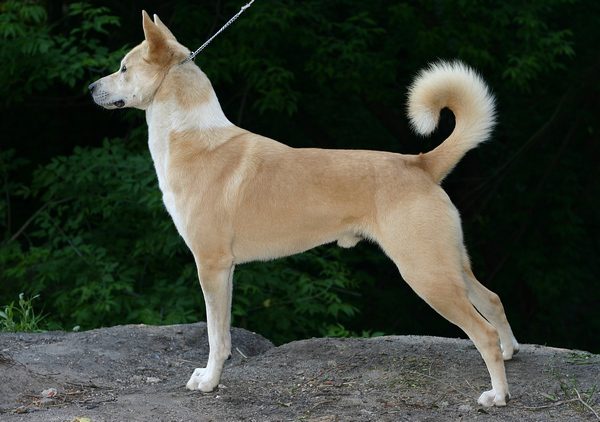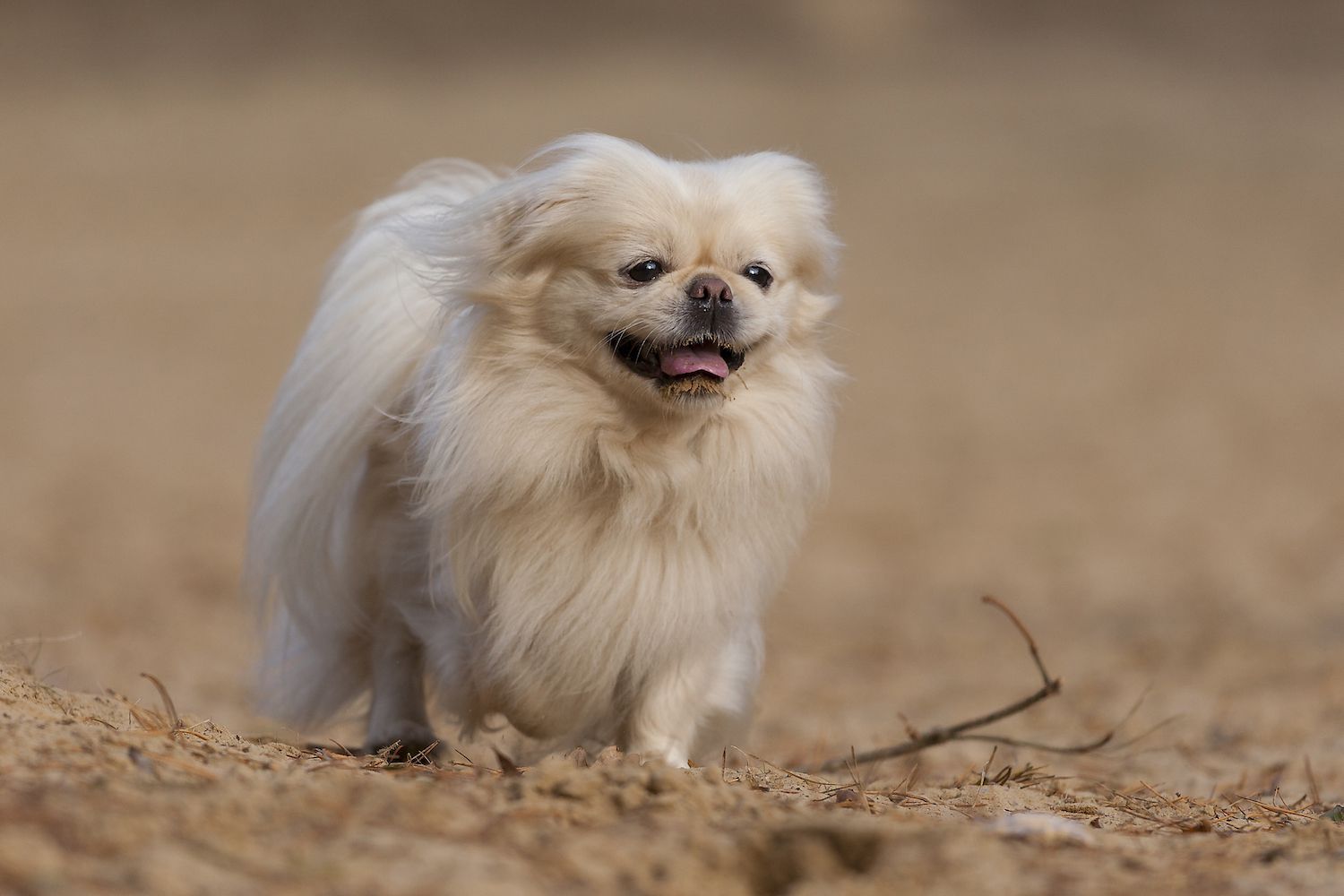Key Takeaways:
- Lhasa Apsos are small, sturdy dogs with a long, flowing coat that requires regular grooming to prevent matting and tangles.
- They have a friendly and affectionate temperament, but can be independent and stubborn at times.
- Lhasa Apsos are known for their alertness and make excellent watchdogs.
- Regular exercise is important for Lhasa Apsos to keep them physically and mentally stimulated, but they do not require extensive exercise like some other breeds.
- Proper socialization from an early age is crucial for Lhasa Apsos to ensure they grow up to be well-behaved and confident dogs.
Are you curious about Lhasa Apsos? These fluffy little dogs may be small in size, but they are big on personality! In this article, we will explore the characteristics and care of Lhasa Apsos, giving you valuable insights into why understanding this topic is essential. Whether you're a dog lover looking to learn more about different breeds or considering adding a Lhasa Apso to your family, this information will provide you with the knowledge you need. So, let's dive in and discover what makes these adorable pups so special!
What is a Lhasa Apso and what makes this dog breed unique?
The Lhasa Apso: A Regal and Ancient Breed
I want to tell you about the Lhasa Apso, an extraordinary dog breed with a rich history. Originating from Tibet, these dogs were highly regarded by Tibetan monks and nobles for centuries. The Lhasa Apso is known for its long, flowing coat that gives it an elegant appearance.
One of the unique features of the Lhasa Apso is its independent and confident nature. They are not afraid to stand their ground and can be quite protective of their families. Despite their small size, Lhasa Apsos have a big personality that sets them apart from other breeds.
Key Features:
- Ancient breed with a regal history
- Distinctive long, flowing coat
- Independent and confident personality
- Small size with a big personality
Caring for a Lhasa Apso's long coat: Tips for grooming and maintenance
Grooming the Luxurious Coat of a Lhasa Apso
If you decide to welcome a Lhasa Apso into your home, one of the essential aspects of their care is grooming. Their beautiful coat requires regular attention to keep it healthy and free from tangles or mats.
To maintain their luxurious coat, you will need to brush them at least two to three times per week. This will help prevent matting and remove any loose hair. Additionally, regular bathing every four to six weeks will keep their coat clean and shiny.
Grooming Tips:
- Brush their coat two to three times per week
- Use a slicker brush or comb to prevent matting
- Bathe them every four to six weeks
- Trim the hair around their eyes and ears for better visibility and hygiene
Keeping your Lhasa Apso healthy: Common health issues and prevention
Promoting the Health and Well-being of Your Lhasa Apso
As a responsible pet owner, it is important to be aware of common health issues that can affect Lhasa Apsos. By taking preventive measures, you can ensure that your furry friend stays happy and healthy.
Lhasa Apsos are prone to certain conditions such as hip dysplasia, progressive retinal atrophy (PRA), and allergies. Regular visits to the veterinarian, a balanced diet, and regular exercise are crucial in maintaining their overall well-being. It's also important to keep up with vaccinations and flea/tick prevention.
Tips for Promoting Health:
- Schedule regular vet check-ups
- Feed them a balanced diet appropriate for their age and size
- Provide regular exercise to keep them fit
- Maintain up-to-date vaccinations and flea/tick prevention treatments
Lhasa Apso temperament: Are they friendly or reserved?
The Unique Temperament of Lhasa Apsos
If you're wondering about the temperament of a Lhasa Apso, let me assure you that they have a distinct personality. While they may appear aloof or reserved with strangers, they are incredibly loyal and affectionate towards their families.
Lhasa Apsos have a keen sense of alertness and make excellent watchdogs. They will bark to alert you of any potential dangers or intruders. However, early socialization is essential to ensure they are comfortable around new people and animals.
Temperament Traits:
- Loyal and affectionate towards their families
- Alert and protective nature
- Potential reserve with strangers
- Require early socialization for proper behavior
Exercise needs for Lhasa Apsos: Finding the right balance
Balancing Exercise for a Happy Lhasa Apso
When it comes to exercise, Lhasa Apsos have moderate needs that can be met with regular walks and playtime. While they may not require intense physical activity like some other breeds, it's important to provide mental stimulation as well.
Apart from daily walks, engaging in interactive games or puzzle toys can keep your Lhasa Apso mentally stimulated. Remember, every dog is unique, so it's essential to observe your pet's energy levels and adjust their exercise routine accordingly.
Exercise Tips:
- Take them for daily walks
- Engage in interactive games or puzzle toys for mental stimulation
- Observe their energy levels and adjust exercise accordingly
- Avoid overexertion due to their small size
Training a Lhasa Apso: Tips and methods that work best
Training Your Lhasa Apso: Patience and Consistency
Training a Lhasa Apso requires patience, consistency, and positive reinforcement. These dogs are intelligent but can be stubborn at times. It's important to establish yourself as the pack leader while using reward-based training methods.
Start with basic commands such as sit, stay, and come. Keep training sessions short and fun to maintain their interest. Socialization is also crucial during their early months to ensure they grow up to be well-behaved and confident dogs.
Training Tips:
- Use positive reinforcement techniques
- Keep training sessions short and engaging
- Establish yourself as the pack leader
- Focus on socialization during their early months
Creating a safe home for your Lhasa Apso: Tips for owners
A Safe Haven for Your Lhasa Apso
To create a safe home environment for your Lhasa Apso, there are a few precautions you should take. Start by securing any potential hazards such as toxic plants or chemicals that could harm your pet if ingested.
Lhasa Apsos have a tendency to explore, so it's important to keep electrical cords out of their reach and secure any small objects that they could swallow. Providing them with a comfortable bed or crate will give them a designated space where they feel secure.
Tips for Safety:
- Secure potential hazards like toxic plants or chemicals
- Keep electrical cords out of reach
- Secure small objects that could be swallowed
- Provide a comfortable bed or crate for security
In conclusion, the Lhasa Apso is a small and friendly dog breed that requires regular grooming and exercise. With proper care and attention, they can make wonderful companions for families and individuals alike.
Are Lhasa Apso dogs high maintenance?
Lhasa Apsos require regular grooming to maintain their distinctive coats. While they are generally not high-maintenance, their fur needs frequent attention to prevent matting. Grooming and shedding are essential aspects of caring for Lhasa Apsos, as they are known for their long, straight, and glossy fur.
Do Lhasa Apsos make good pets?
The Lhasa Apso is known for its loyalty and enjoys spending time with its family. It is a playful and affectionate pet that makes a great addition to any household. However, Lhasa Apsos can also be independent and may challenge their owners, so it's important for their owners to be firm yet fair.
What are the character traits of a Lhasa Apso?
Lhasas are small but resilient dogs with a regal demeanor. They are known for their sense of humor and loyalty to their families, but can be reserved around unfamiliar people. They typically stand less than a foot tall at the shoulder.
What are the pros and cons of Lhasa Apso dogs?
Choosing a Lhasa Apso as a pet has its advantages, such as their ability to be good guard dogs, their non-shedding coat, and their loyalty. However, there are also downsides, including their unsuitability for households with small children, their tendency to bark frequently, and their need for regular brushing.
What are the disadvantages of a Lhasa Apso?
Lhasa Apsos have a tendency to be aggressive because of their natural instincts to guard. They are fearless in protecting their home and will bark at strangers. However, if they are not properly trained or socialized, this guarding instinct can turn into aggression. It is important to note that Lhasa Apsos are known to have a higher likelihood of biting compared to other breeds.
Are Lhasa Apso good for seniors?
Lhasa Apsos are a great option for seniors with grandchildren due to their gentle nature. They have excellent hearing and are naturally protective, making them good watchdogs. They are curious and enjoy exploring yards and parks, but they don't need a lot of exercise.

















